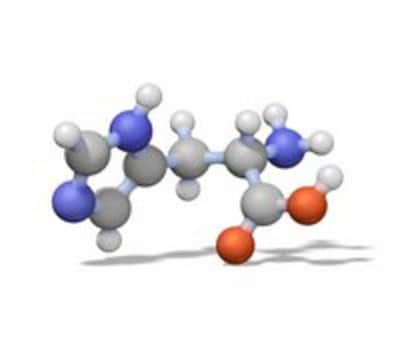PEFBSC-RO
Roche
Pefabloc® SC
powder, solubility: 100 mg/mL in aqueous buffer, suitable for blocking, suitable for protein purification
Synonym(s):
Pefabloc® SC, 4-(2-aminoethyl)-benzene-sulfonyl fluoride, aebsf, aminoethyl-benzene-sulfonyl fluoride, 4-2-, proteinase k inhibitor
About This Item
Recommended Products
form
powder
Quality Level
mol wt
Mr 239.5
packaging
pkg of 1 g (11429876001)
pkg of 100 mg (11429868001)
pkg of 500 mg (11585916001)
manufacturer/tradename
Roche
technique(s)
blocking: suitable
protein purification: suitable
mp
175-185 °C
solubility
aqueous buffer: 100 mg/mL
storage temp.
2-8°C
Related Categories
General description
Specificity
Application
- Pefabloc SC is used to inhibit the detrimental effects of proteases during preparative protein purification.
- Due to its low toxicity toward eukaryotic cells, it may be applied in the production of recombinant proteins, during fermentation of transformed cells, where proteolytic digestion may decrease the yield of the desired product.
- Pefabloc SC is used to completely inactivate proteinase K during the preparation of chromosomal DNA in agarose plugs. For this purpose, the cells are embedded in agarose and digested with proteinase K to degrade all proteins. Before a specific restriction endonuclease is added, the proteinase K is inactivated by incubating the agarose plugs in 1 to 5 mM Pefabloc SC in 10 mM Tris-HCl, 1 mM EDTA , pH 7 for 2 hours at +37 °C or overnight.
- In contrast to PMSF, Pefabloc SC is an excellent blocker of thrombin activity in serum or plasma. In these biological fluids, PMSF interacts in a reversible manner with albumin, which reduces its free concentration and leads to a delay in thrombin inactivation. Pefabloc SC, however, does not react with serum albumin, and exhibits a threefold higher capacity to inactivate thrombin under similar conditions.
- Pefabloc SC can be used on living cells.
- Use Pefabloc SC to inactivate proteinase K, for example, during pulsed-field gel electrophoresis (PFGE).With this technique, isolating the genomic DNA requires proteinase K to degrade cellular components, and this highly resilient protease is difficult to inactivate. Pefabloc SC inhibits proteinase K, and protects the stability of restriction enzymes used for further DNA analysis.
Features and Benefits
- Benefit from an easy-to-use inhibitor. Add water-soluble Pefabloc SC directly to aqueous buffers.
- Avoid hazardous compounds. Obtain non-toxic protease inhibition without risk to you, or those around you (see Figure 1).
- Ensure protection with improved stability. Achieve consistent protease inhibition even at pH levels above 7.0 and temperatures above +4°C (see Figure 2).
- Maximize inhibition. Be certain that your levels of active inhibitor are high enough by using a product that is reliably soluble and stable.
Quality
Preparation Note
Working solution: Solvent is recommended in aqueous buffers or distilled water up to 100 mg/ml.
Storage conditions (working solution): -15 to -25 °C (stock solution)
The stability of Pefabloc SC in aqueous solution is affected both by pH and temperature. Concentrated stock solutions (e.g., 100 mM) prepared in dist. water are acidic and stable for 1 to 2 months at -15 to -25 °C, if stored in aliquots.
Note: Store Pefabloc SC under acidic conditions and add to biological samples shortly before use to minimize hydrolysis.
Reconstitution
Other Notes
Legal Information
Signal Word
Danger
Hazard Statements
Hazard Classifications
Eye Dam. 1 - Skin Corr. 1B
Storage Class Code
8A - Combustible, corrosive hazardous materials
WGK
WGK 2
Flash Point(F)
Not applicable
Flash Point(C)
Not applicable
Certificates of Analysis (COA)
Search for Certificates of Analysis (COA) by entering the products Lot/Batch Number. Lot and Batch Numbers can be found on a product’s label following the words ‘Lot’ or ‘Batch’.
Already Own This Product?
Find documentation for the products that you have recently purchased in the Document Library.
Customers Also Viewed
Our team of scientists has experience in all areas of research including Life Science, Material Science, Chemical Synthesis, Chromatography, Analytical and many others.
Contact Technical Service












